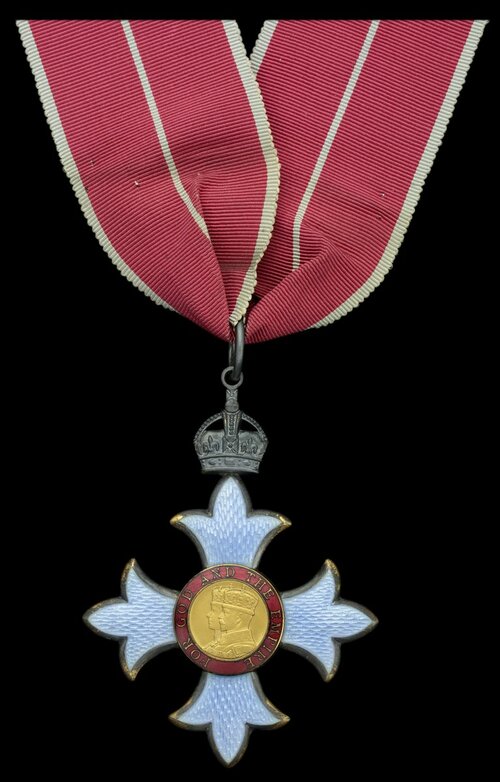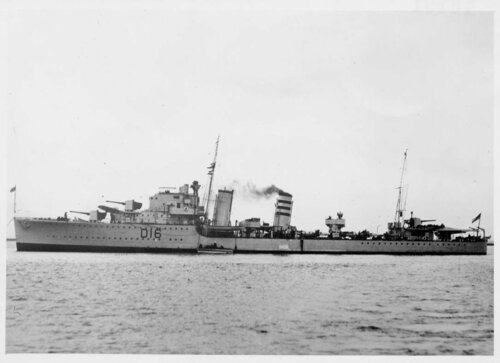Auction: 21002 - Orders, Decorations and Medals
Lot: 217
Sold by Order of a Direct Descendant
The C.B.E. attributed to Brigadier G. E. Mansergh, Royal Signals, who served as Senior Administrative Officer of 2nd Corps in France 1940 - only to die of wounds sustained during the Dunkirk evacuation
The Most Excellent Order of the British Empire, C.B.E. (Military) Commander’s 2nd type neck Badge, silver-gilt, in its Garrard & Co. case of issue, good very fine
C.B.E. London Gazette 16 July 1940.
[M.C.] London Gazette 14 January 1916.
Geoffrey Ernest Mansergh was born at Wandsworth, London on 31 January 1893 to Ernest Lawson and Emma Cecilia Mansergh. His father was a Civil Engineer and Partner in the firm Messrs. James Mansergh and Sons of Westminster along with his father and brother. Mansergh was educated at Rugby, Cotton House, where he played for the School XV in 1910 and served as an Officer with the School Cadets Corps. Upon leaving Rugby he joined the Royal Military Academy, Woolwich in early 1911. Here Mansergh excelled, becoming Senior-Under-Officer and being awarded the King's Medal and Sword of Honour upon graduation on 19 July 1912.
With the outbreak of the Great War in 1914 he soon found himself deployed to France, serving with rank of Lieutenant in the Royal Engineers. Here again Mansergh distinguished himself early, receiving a brace of 'mentions' (London Gazette 17 February 1915 & 1 January 1916, refers) to go with his M.C.. Transferring to the Signal Service Training Centre as an Instructor on 16 September 1916 with the temporary rank of Captain, though this was made permanent on 26 June 1917. Leaving the role of Instructor on 14 October he was soon given a temporary staff job at the War Office which ran from 10 December 1917-5 April 1918. However Mansergh was not finished with frontline appointments and was advanced Temporary Brigade Major on 6 April 1918 in an Infantry Brigade. He held this position until the end of the War.
Mansergh transferred to the newly-formed Royal Corps of Signals on 18 March 1921. Aiding in the development of this new unit he was promoted Major on 15 February 1927 and seconded to Staff on 16 March 1928. Appointed General Staff Officer, 2nd Grade Mansergh held this post from 26 April 1930-16 March 1932. Promoted Brevet Lieutenant-Colonel on 30 June 1933, he was advanced Colonel on 15 December 1938. With this promotion came an appointment as Assistant Adjutant and Quartermaster-General of 1st Division, a role he was still performing in 1939 with the outbreak of the Second World War. Promoted Temporary Brigadier and made Senior Administrative Officer, HQ 2nd Corps Mansergh was present for the Fall of France in 1940 finding himself on the beaches at Dunkirk in June 1940. It was here while aboard the Ivanhoe, later scuttled after the Texel Disaster, that he was severely wounded. Possibly one of the five soldiers killed in the air attack which hit Ivanhoe on 1 June, also killing 21 sailors and destroying 2 of the ship's boilers. Dying of his wounds on 2 June he was posthumously awarded the C.B.E. for his actions, being buried in Maidstone Cemetery, Kent.
Subject to 20% VAT on Buyer’s Premium. For more information please view Terms and Conditions for Buyers.
Sold for
£400
Starting price
£180







